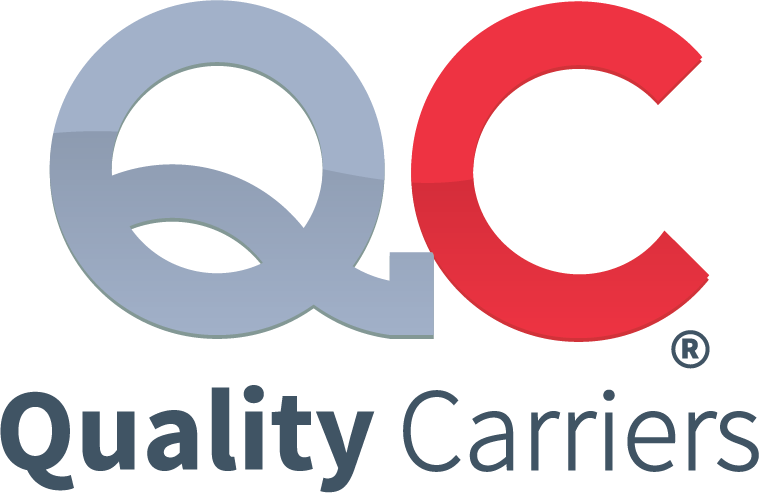7 Steps in Starting an Owner Operator Trucking Business

Are you dreaming of becoming your boss in the world of transportation? Starting an owner operator trucking business might be your ticket to freedom and success. As an owner operator, you can control your destiny, make important business decisions, and enjoy the fruits of your labor. However, setting up your own trucking business involves careful planning and execution.
In this blog, we’ll guide you through seven steps to help you start your journey as an owner operator in the trucking industry.

Step 1: Write a Business Plan
Every successful business starts with a well-thought-out plan. Your business plan should be detailed and comprehensive. Define your niche in the trucking industry – will you focus on long-haul, regional, or specialized transport? Outline your financial projections, including startup costs, expected income, and expenses. Consider factors like fuel costs, maintenance, insurance, and permits. Your plan should also address marketing strategies, target customers, and competition analysis.
Step 2: Establish Your Company
Next, you’ll need to formally establish your trucking business as a legal entity. This typically involves registering your company with the appropriate government agencies, such as the Secretary of State’s office. In a trucking business, you can operate as a sole proprietorship, LLC, or another business structure that suits your needs.
When you form a corporation or LLC, you will need to take the following steps:
- Appoint a Registered Agent: This registered agent is an individual or entity designated to receive important legal documents and work on behalf of your business. This ensures that you are promptly informed of any legal matters requiring attention.
- Obtain Your EIN (Employer Identification Number): An EIN, also known as a Federal Tax Identification Number, is essential for tax purposes and is often required to open a business bank account. It’s like a social security number for your business and is used to identify your trucking company to the IRS.
Step 3: Obtain Business Licenses and Permits
You’ll need various permits and licenses to operate a trucking business legally. The specific licenses required can vary by location and the nature of your operations, so be sure to research and comply with all local, state, and federal regulations.
These may include:
- Commercial Driver’s License (CDL): As a truck driver, you’ll need a CDL to operate a commercial motor vehicle. Depending on the cargo type and vehicle you transport, you may also require specific endorsements, such as hazmat or tanker endorsements.
- USDOT Number: The Federal Motor Carrier Safety Administration (FMCSA) will issue a USDOT number. This monitors a trucking company’s safety record and compliance with federal regulations.
- Motor Carrier Operating Authority (MC Number): The MC number is another identifier issued by the FMCSA. It’s necessary for interstate commerce and allows your business to transport goods across state lines.
- BOC-3 Filing: The BOC-3 filing designates an agent who can accept the legal documents on your behalf in each state where you operate. It ensures that you can be served with legal papers in any jurisdiction.
- International Registration Plan (IRP) Credentials and International Fuel Tax Agreement (IFTA) Decal: If your trucking business operates across state lines or in multiple jurisdictions, you’ll need IRP credentials and an IFTA decal. These allow you to apportion registration fees and report and pay fuel taxes accurately.
Step 4: Buy or Lease a Truck
Your truck is your most significant asset as an owner operator. Decide whether to buy or lease your truck, considering your budget, credit history, and long-term goals. Many owner operator companies offer lease-to-own programs that can help you get started with less upfront capital.
- New vs. Used Trucks: Consider whether you want to invest in a new or used truck. New trucks typically come with warranties and advanced technology but are more expensive. Used trucks can be cost-effective but may require more maintenance. Ensure the truck you choose suits the freight you intend to haul.
- Leasing a Truck: Leasing can be an attractive option for those who want to avoid the upfront costs of purchasing a truck. Two types of leases are – finance leases (similar to purchasing) and operating leases (more like renting). Each has its advantages and drawbacks. Operating leases often come with lower monthly payments but may have mileage restrictions and less flexibility.
Step 5: Select the Proper Insurance Coverage
Insurance is essential to protect your trucking business and assets. You’ll need commercial truck insurance that covers your vehicle and cargo. Additionally, consider liability insurance to protect your business from potential lawsuits. You can work with an insurance agent who understands the needs of the owner operator trucking companies is essential.
Step 6: Track Your Income and Expenses
Accurate financial records are crucial for managing your trucking business efficiently. Use accounting software or hiring a professional accountant who specializes in trucking. Diligently track all income, expenses, fuel costs, maintenance, tolls, and taxes. This information will help with tax filing and enable you to make informed business decisions.
Step 7: Find Loads and Grow Your Business
Once your business runs, it’s time to find loads and secure contracts. Building a network of reliable customers and partners is essential. Join load boards and online freight marketplaces to find available loads. Establish strong relationships with shippers, brokers, and other trucking companies. Consistently delivering goods on time and providing excellent service will help you secure repeat business and referrals, facilitating the growth of your operation.

Are You Ready to Start a Trucking Company?
Before launching your own trucking company, assess your readiness. Partnering with established companies like Quality Carriers can offer numerous benefits. They provide a vast network of clients, competitive pay, safety training, and maintenance support. Plus, they specialize in transporting hazardous materials if you’re interested in that niche. Quality Carriers’ financial stability ensures prompt payments and offers growth opportunities as your business expands. If you’re considering becoming an owner operator and starting a trucking business, consider the advantages of teaming up with Quality Carriers.
In conclusion, starting an owner operator trucking business is an exciting endeavor that offers the potential for financial independence and career control. By following these steps and staying committed to safety and customer service, you can build a successful career in the trucking industry. It’s a journey that starts with a plan and continues with dedication, hard work, and the freedom of the open road.
FAQs about Starting an Owner Operator Trucking Business
Startup costs vary widely but often include the truck’s price, insurance premiums, permits, and initial maintenance expenses. Creating a detailed business plan to estimate your specific costs is essential.
Challenges can include fluctuating fuel prices, maintenance costs, competition, and managing the administrative aspects of the business.
Many financial institutions offer commercial truck loans tailored explicitly to owner operators. These financing loans can help you purchase your truck.
